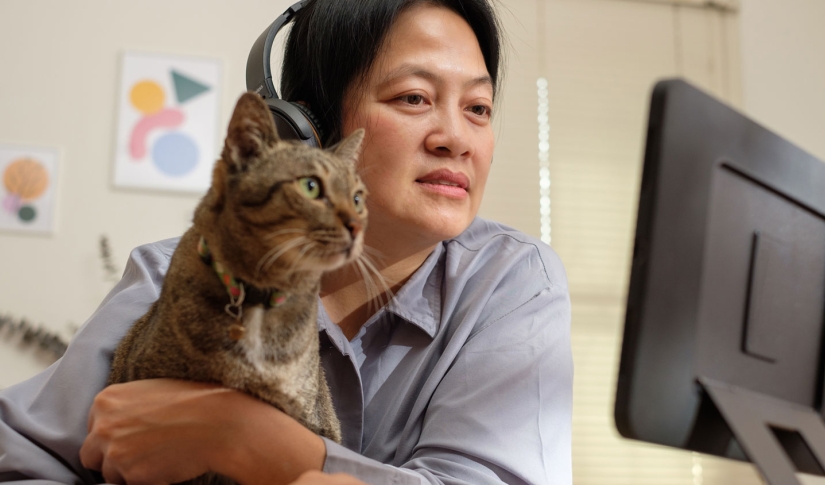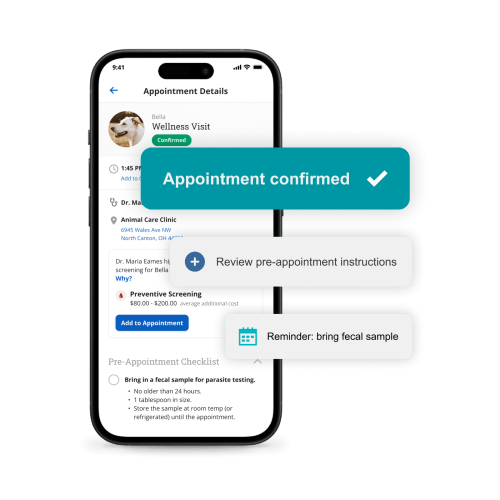Thinking Outside the Box: The Possibilities of Remote Veterinary Work

The idea of remote veterinary work was not on many practices’ radar before the pandemic. However, the value of hybrid and flexible working models has since become clear. Although traditional veterinary practices require hands-on care, off-site team members can now help manage administrative and telemedicine duties. Remote work can help practices retain top talent and a full staff and is a potential solution for the profession’s chronically poor work-life balance and high turnover rates.
Making remote veterinary work possible
Cloud-based software is key for managing remote work. Without servers to worry about, team members can access cloud-based software from anywhere. And, most modern software systems can integrate with other platforms and programs to create a comprehensive dashboard for efficient task management. Cloud software allows veterinary professionals to access records, schedule appointments, and communicate with clients with a laptop and internet connection, enabling efficient off-site work.
Sometimes, working from home allows team members to accomplish more in less time, because they aren’t bombarded with constant distractions. Remote work can also accommodate team members with lifestyle changes or physical disabilities who might otherwise have to leave their positions—helping to keep a high-performing team intact.
Remote and hybrid work by role
Here are some ways each hospital team member can work remotely:
- Veterinarians — Veterinarians can conduct telehealth consultations, communicate with clients, conduct follow-ups, and complete charts.
- Client service representatives (CSRs) — CSRs who work remotely can answer phones, schedule appointments, handle questions and requests, and manage billing and statements.
- Veterinary technicians — Similar to a veterinarian, technicians can assist with telehealth consultations, complete follow-ups, educate clients, create estimates, and finish charts from home.
- Administration — Practice managers and administrative staff can run reports, hold meetings and take notes, reconcile finances, adjust policies and protocols, and otherwise run the business.
Benefits of remote and hybrid schedules
Remote veterinary work can benefit individuals, teams, and veterinary practices in the following ways:
- Reduced stress and burnout — Flexible work allows team members to balance their personal and professional lives by reducing commute time and allowing them to work around family and personal responsibilities. Employees with more control over their schedules often feel less stressed.
- Expanded talent pool — Making some roles fully remote allows practices to grow their hiring pool beyond the immediate geographic area. As technology evolves, fully remote roles that don’t require a physical presence are possible.
- Improved work-life balance — Many veterinary professionals deal with long hours and emotionally demanding cases. Remote veterinary work allows team members to spend more time at home or on activities that reduce stress, including frequent breaks, gym visits, and hanging out with family pets.
- Increased efficiency — Working from home can sometimes be easier and more efficient than working in the clinic, which can be filled with distractions such as barking dogs, angry clients, and messes in the lobby. Remote team members can free up the in-clinic staff to handle patient and client needs.
Challenges and downsides of remote and hybrid work
Despite its apparent benefits, remote veterinary work can also present challenges. Anyone working from home must have access to reliable technological resources, including a computer, internet connection, and possibly a landline phone. Team members who mostly or entirely perform client-heavy roles remotely need a more intensive setup with multiple monitors. Practice leadership must invest in initial setup costs for long-term gains.
Poor communication between remote and in-clinic team members can potentially lead to frustration and animosity, which can create a rift and damage hospital culture. Messaging tools built into cloud-based veterinary software can keep communication lines open and ensure everyone stays on the same page.
Remote work can improve veterinary team members’ work-life balance and provides options for those working around childcare, elder care, or other personal challenges. Cloud-based software can facilitate remote and hybrid schedules and make team communication easier, regardless of physical location. Flexible working models can help create sustainable and fulfilling career paths and enable veterinary practices to retain high-performing talent.




